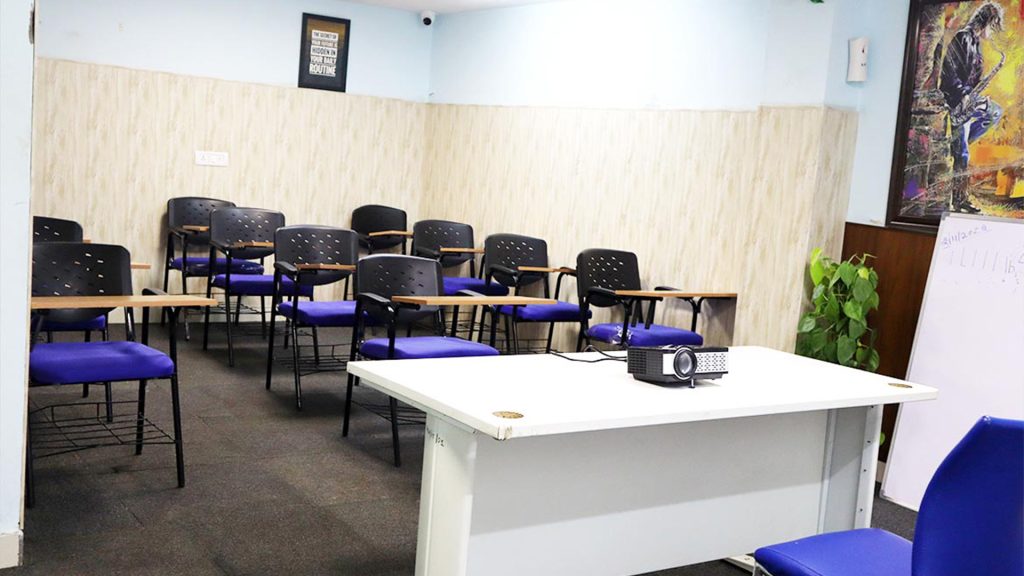Anxiety may cloud your mind, but clarity and strength are within reach.
Treatment Team

Dr. Ashish Kumar Mittal
(AIIMS - Delhi)
Medical Director

Dr. Rahul Rai
Group Center Head
Consultant Psychiatrist

Dr. Anirban Dutta
(NIMHANS)
Consultant Psychiatrist

Dr. Pranvi Gupta
Senior Resident Psychiatrist
Consultant Psychiatrist

Dr. Tushar Saini
Senior Resident Doctor
Consultant Psychiatrist
Understanding Anxiety: Symptoms, Causes, and Effective Treatment Options
Anxiety is a normal reaction to stress, but for some, it becomes so overwhelming that it interferes with the ability to live normally. Whether the anxiety symptoms are occasional, panic attacks, or severe anxiety symptoms, understanding anxiety and its many forms is the very first step to finding the right treatment for anxiety attacks and managing its impact on your life. We delve into the various forms of anxiety, including social anxiety disorder, OCD (obsessive-compulsive disorder), and panic disorder, and provide insights on the best treatment for anxiety and therapy for anxiety options in this guide.
What is Anxiety?
Anxiety is a feeling of unease, worry, or fear that can range from mildly uncomfortable to severe. Such excessive anxiety leads to generalized anxiety disorder, social anxiety, and even panic attack disorder. Typical symptoms of anxiety in women differ from typical symptoms of anxiety in men, though some common symptoms include feelings of restlessness, a quick heart rate, and difficulty concentrating. Even though stress and anxiety very much go hand-in-hand, anxiety usually outlasts the stressful situation, leading to chronic anxiety or even panic disorder symptomology.
Common Symptoms of Anxiety
An anxiety disorder can manifest in varied symptoms. The most common of these anxiety symptoms are as follows:
- Panic symptoms. Sudden intense fear and rapid heart rate, shortness of breath, dizziness. Or, they may be linked to specific situations or trigger without a signal.
- Fear of judgment and embarrassment in social situations; avoidance behaviors or withdrawal from groups and events.
- Performance anxiety: A fear of being judged or performing under the pressure of some situation, such as public speaking or exams.
- Health anxiety disorder: Excessive worries related to health, where a person pathologizes normal physiological sensations as potential marks of serious diseases.
- Sleep anxiety: A fear or anxiety about being asleep or not that leads to insomnia or disrupted sleep patterns.
Kinds of Anxiety Disorders
There are several varieties of anxiety disorders, each with its distinct symptoms and challenges: Social anxiety disorder is characterized by an intense fear of social situations or being scrutinized by others, leading to avoidance of social gatherings. Panic disorder involves a series of recurrent panic attack episodes which can come suddenly, typically without a clear prior trigger.
- OCD (obsessive-compulsive disorder): Intrusive, obsessive thoughts (such as OCD obsessive thoughts) followed by compulsive behaviors (such as repetitive actions) to reduce anxiety levels.
- Separation anxiety: An intense fear of separation from loved ones, commonly found in children, but it can be present even in adult patients.
- Agoraphobia: Fear of places or situations from where a person may feel difficulty escaping or from where help may not be forthcoming when panic hits.
Treatment of Anxiety
Managing anxiety involves a combination of therapeutic approaches, medications, and lifestyle changes. If you’re searching for anxiety solutions, the following options are among the most effective:
- Cognitive Behavioral Therapy, or CBT for anxiety: A very effective form of therapy that helps people identify and change negative thought patterns and behaviors contributing to anxiety. CBT for anxiety has emerged as one of the best treatments for panic disorder and social anxiety.
- Treatment for anxiety: A licensed therapist or psychologist near me for depression and anxiety can receive personalized treatment, including social anxiety therapy, OCD treatment, and panic attack treatment.
- Medication: Anti-anxiety medications, such as SSRIs or selective serotonin reuptake inhibitors, may also be prescribed to help control symptoms of anxiety and depression at the same time.
- Mindfulness and Relaxation Techniques : Yoga, meditation, and deep breathing exercises are also known to minimize anxiety and soothe an anxiety attack.
Anxiety Symptoms in Women and Men
Anxiety can affect both men and women, but anxiety symptoms in women may differ from those in men. Women are more likely to experience social anxiety disorder and separation anxiety, while men might be more prone to panic attack disorder. Regardless of gender, it’s important to seek professional help if you’re experiencing extreme anxiety symptoms or chronic anxiety.
OCD and Anxiety
OCD (obsessive-compulsive disorder) and anxiety frequently accompany each other, where OCD disorder characterizes excessive, intrusive thoughts and compulsive behaviors that are as a way to reduce anxiety. The most common problems are relationships’ OCD, where individuals experience obsessive thoughts concerning relationship issues, and OCD obsessive compulsive disorder, which requires one to have rituals to deal with anxiety. Effective treatment, including OCD cure and OCD treatment, often takes both therapy and medication.
Social Anxiety Treatment
A person afflicted with social anxiety symptoms should seek social anxiety treatment to free himself of the fear and humiliation that often come with socializing. Anxiety therapy, in particular social anxiety therapy, will help anyone with anxiety build his confidence and learn how to cope with social situations.
Panic Disorder and Treatment
Individuals diagnosed with panic disorder experience recurrent panic attacks, and the treatment is aimed at the reduction of intensity or frequency of the attacks. Panic attack disorder can be managed with panic attack treatment combined with medication and therapy for anxiety such as CBT for anxiety.
Anxiety and Depression
Most of the times both anxiety and depression occur in combination, causing features of both. This can lead to the significant distress that makes people face problems in everyday life. Fortunately, treatment of depression and anxiety often involves medications and therapy for both of these conditions together.
Managing Anxiety
Anxiety management is a constant procedure, but there are many ways to calm an anxiety attack and limit its impact on your life. Relaxation techniques, mindfulness practice, and stress management skills can all be used to reduce anxiety and regain control of your mental health. For people suffering from extreme symptoms of anxiety, finding an anxiety specialist near me could be the way to develop a tailored treatment plan.
Conclusion
Living with anxiety, whether it’s performance anxiety, panic attacks, or high functioning anxiety, can feel overwhelming, but there are anxiety solutions that can help. From therapy for anxiety, such as CBT for anxiety, to medication and lifestyle changes, you can find ways to manage and overcome anxiety disorder. If you are suffering from chronic anxiety, agoraphobia, or other anxiety disorders, don’t hesitate to seek the help of a professional anxiety specialist or a psychologist for depression and anxiety near me and you can get all that right for your mental health anxiety and start living in a more balanced, fulfilling life.
FAQs on Anxiety
Contact us at

Office Information
- Call Us 24/7 +91 92897 30444
- Work with us info@athenaokas.in
- Our Location #446, Sector – 39, Gurugram, Haryana – 122018
Treatment Programs
- Bipolar Disorder treatment In Delhi NCR
- Best Mental Health treatment In Delhi NCR
- Mental Health Treatment In Delhi NCR
- Treatment for Psychosis
- Psychosis Treatment In Delhi NCR
- How to Diagnose Schizophrenia ?
- Schizophrenia Treatment In Delhi NCR
- BPAD Treatment
Treatment Programs at Athena OKAS
- Anxiety Treatment
- Bipolar Disorder Treatment
- Borderline Personality disorder
- Depression Treatment
- psychosis
- Schizophrenia Treatment
- Women Mental Health
- Psychiatric Emergency Services







